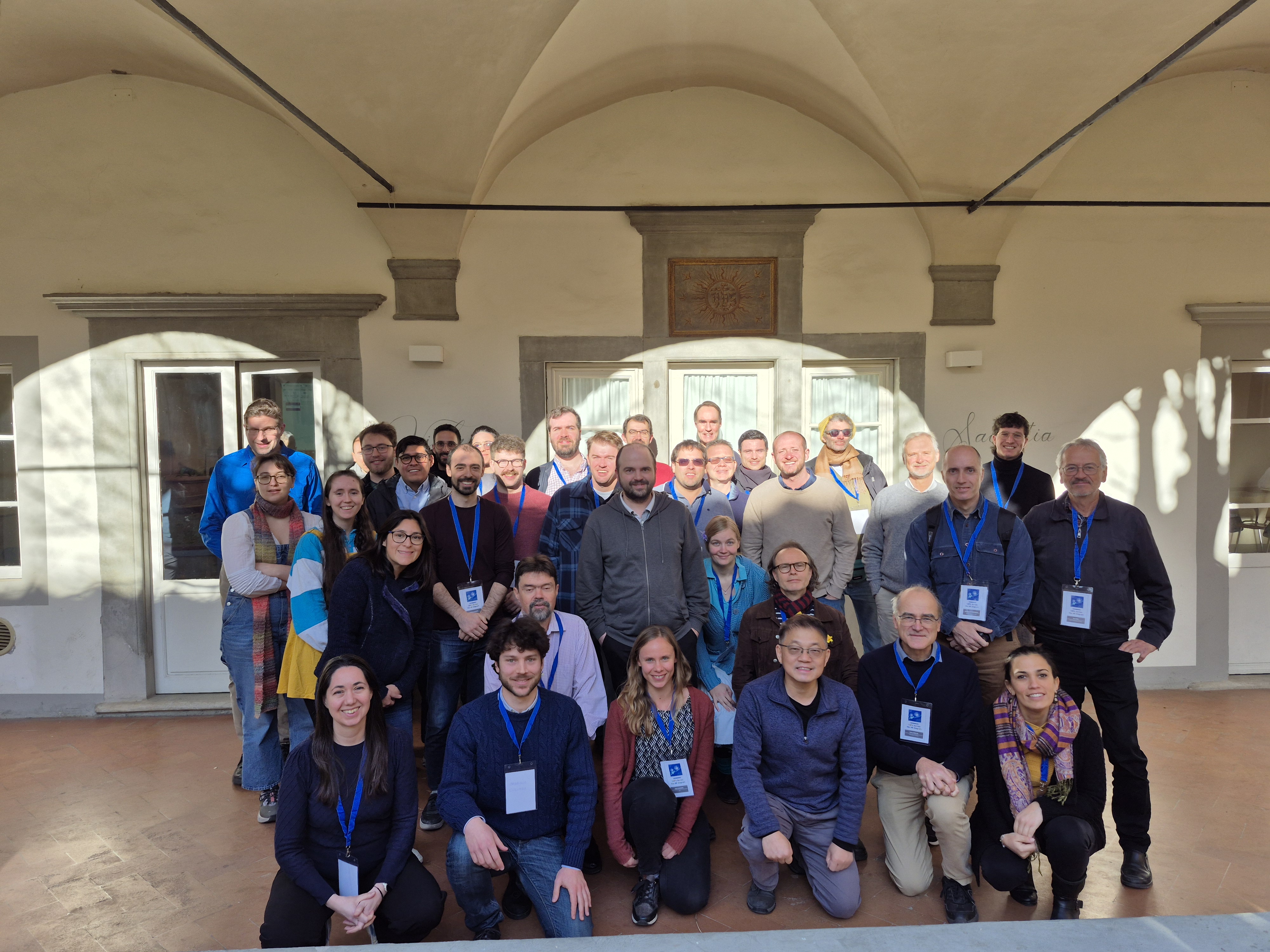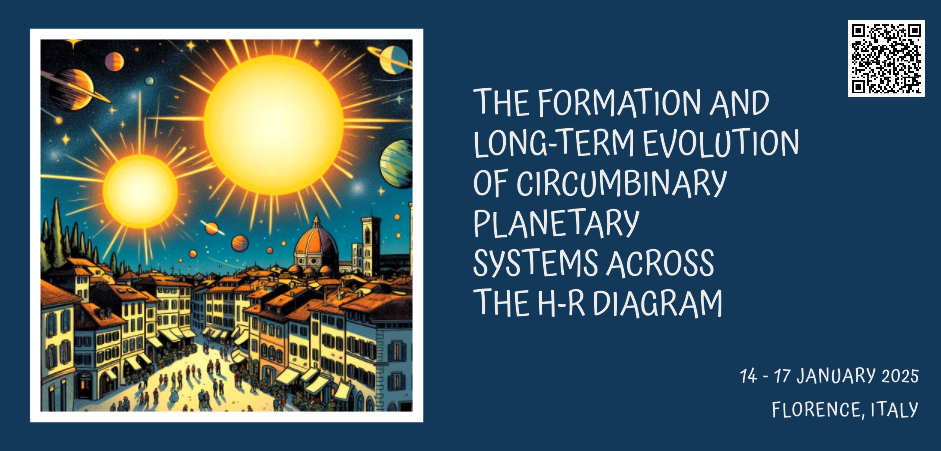Overview
The discovery of the 5700+ currently known exoplanets reveals a wide variety of planetary systems, including those in binary star systems. These planets are categorized as either "S-type" (orbiting one star of the binary) or "P-type" (orbiting both stars in a close binary). The latter, commonly known as Circumbinary planets (CBP), are unique laboratories to test both planet formation theories and planetary system evolution in extreme environments.
While expected to be as common as those orbiting single stars, CBPs are rarely detected due to observational biases. Upcoming missions like Gaia, the Nancy Gray Roman ST, and PLATO are expected to increase CBP detections, but more focused efforts are needed to fully understand their physical properties and evolution. Morevoer, planets in binary systems, found at various evolutionary stages of their host stars, demonstrate that planets can survive even the most extreme phases of binary evolution.
Despite observational biases, which hinder their detection and our possibility to gain deeper comprehension on their nature, more and more efforts are devoted to understanding their physical properties by both observational and theoretical means. A key facet to improve our knowledge of such a population is to connect existing findings obtained from the study of its various evolutionary phases, from formation, through the Main Sequence, and beyond the post-AGB phase.
The main goal of this workshop is to bring together the communities that work on the different aspects of the science of circumbinary exoplanets: (1) planetary formation; (2) occurrence rates and parameters space; (3) dynamics and long-term evolution; (4) binaries and triple system evolution, to ensure a comprehensive approach, both theoretical and observational, to the science of circumbinary exoplanets, and establish an exhaustive network of expertise to help deepen our understanding of these objects.
Scientific program
-
CBP formation: theory and observations on the formation and evolution of exoplanets in protoplanetary circumbinary discs.
-
Main-sequence CBPs: detection and population studies (theoretical and observational) of main-sequence (MS) circumbinary exoplanets.
-
Binary evolution: evolution of binary and ternary systems with circumbinary discs/planets.
-
CBPs beyond the main sequence: population studies and detection (theoretical and observational) of planets beyond the main sequence.
-
Perspectives: what to expect on circumbinary planets from the space missions Gaia, Plato and Nancy Gray Roman Space Telescope.
Registration fees
The registration is subject to the payment of registration fees amounting to 80 euros. The fees cover the access to the venue and to the coffee & tea breaks. The payment will be made online.
The number of participants is limited to 40 people.
The participation to the social dinner is not included in the fees (it will be around 50-60 euros). The payment will have to be done in cash on the first day of the conference. A proof of payment will be provided by the restaurant after the dinner.
SOC
Camilla Danielski (Osservatorio Astrofisico di Arcetri, INAF, Italy)
Mathieu Van der Swaelmen (Osservatorio Astrofisico di Arcetri, INAF, Italy)
Stefan Dreizler (Institut für Astrophysik und Geophysik, Universität Göttingen, Germany)
Kaitlin Kratter (University of Arizona, USA)
Richard Nelson (Department of Physics and Astronomy, Queen Mary University of London, UK)
Paola Pinilla (Mullard Space Science Laboratory, University College London, UK)
Silvia Toonen (Anton Pannekoek Institute for Astronomy, University of Amsterdam, Netherlands)
Amaury Triaud (University of Birmingham, UK)
LOC
Patrizia Braschi (Osservatorio Astrofisico di Arcetri, INAF)
Camilla Danielski (Osservatorio Astrofisico di Arcetri, INAF)
Mathieu Van der Swaelmen (Osservatorio Astrofisico di Arcetri, INAF)
Laura Magrini (Osservatorio Astrofisico di Arcetri, INAF)


